Sounds of then and now: the 60 best Australian songs from 1964 to 2023
Two of The Australian’s greatest musical minds come together to pick the best songs since 1964, from The Easybeats, Cold Chisel and AC/DC to Tina Arena, Nick Cave and Sia. Which songs defined these eras for you?

Australian music has come a long way since 1964, when this newspaper burst on to the cultural landscape. Two of The Australian’s greatest musical minds, Alan Howe and Andrew McMillen, come together to choose the best 60 songs of the past 60 years. To listen as you read, here is our Spotify playlist, which is also embedded at the bottom of the article. We’d love for you to tell us the Australian songs that defined the best years of your life in the comment section.
Alan Howe begins:
1964: 4,003,221 Tears From Now (Judy Stone)
It was hard to get a look in on the charts in 1964 – Australia had fallen in love with the Beatles who toured that year and had the seven best-selling singles. Stone had joined the Reg Lindsay Show in 1956, seeing herself as a country singer, but later toured with Col Joye and covered a series of American pop songs, one of them this clever composition by Artie Wayne and Ben Raleigh, who had written Tell Laura I Love Her.
1965: Shakin’ All Over (Normie Rowe)
Col Joye was Rowe’s hero. The young singer was soon outselling his idol, bursting onto the charts in 1965 with a series of reworked – radically in some cases – standards including It Ain’t Necessarily So, I (Who Have Nothing) and Que Sera Sera whose B side was a blistering take on English band Johnny Kidd and the Pirates’ Shakin’ All Over. It was his first chart-topper and he performs a pulsating version of it to this day.
1966: Friday On My Mind (The Easybeats)
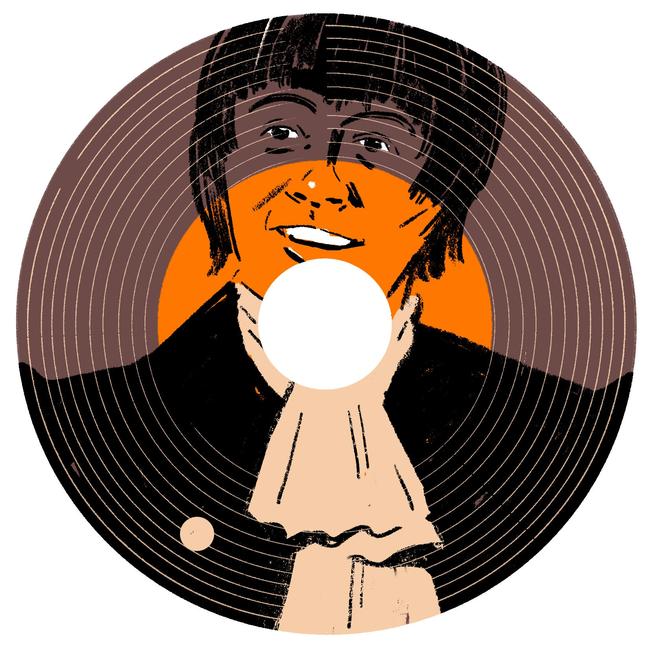
The Easybeats were living in a terrace house in London’s Wembley when Dutchman Harry Vanda came downstairs and played for Englishman Mike Brady, who had slept over, a complicated guitar piece he had written. Brady asked what it was called. “It doesn’t have words yet, George (Young) is still asleep.” Scotsman Young wrote the lyrics for it that day. Not an Australian was involved, but in 2001 it was voted the best Australian song of all time.
1967: Sad Dark Eyes (The Loved Ones)
The moment in 1966 when you heard that growled opening line of The Loved One – “Yonder she’s coming, she comes my way” – the intensity was overwhelming. Then The Loved Ones did it again on the next single, Ever Lovin’ Man. But it was its third, less successful record that showed the extraordinary power of this band and its striking frontman Gerry Humphrys. He could go from being a blues-soaked Long John Baldry to a screaming Little Richard in a single line.
1968: Love Machine (Pastoral Symphony)
If Martians arrived and asked about psychedelic rock, you’d play them this. It’s the late ’60s in a song (co-written by future Bread man James Griffin). Australia’s greatest supergroup – members of Axiom (including Glenn Shorrock) along with Terry Walker (the Strangers) and Ronnie Charles (the Groop) and others – accompanied by the Johnny Hawker Orchestra recorded this one hit and it was indeed a forceful, swirling wonder overseen in the studio by flamboyant doctor, future Sydney Swans owner and crook Geoffrey Edelsten.
1969: The Real Thing (Russell Morris)
Written by Johnny Young as an acoustic folk ballad, Ian Meldrum heard it backstage at the sprawling Saturday morning music show Uptight. He thought it could be made into much more, an opportunity for his friend Morris. Across six minutes and 20 seconds – but many months, EMI saw the studio bills and assumed it was an album – Meldrum created a complex triumph missing only a Jimi Hendrix-style guitar part. By then EMI had called time on it and Morris’s “Oo-mow-ma-mow-mow” would have to stay.
1970: Because I Love You (The Masters Apprentices)
Winning a trip to England at the Battle of the Sounds, The Masters Apprentices took off for London. With time on their hands, the members wrote songs aboard the Fairsky. They befriended young Abbey Road produced Jeff Jarratt who oversaw the Choice Cuts album. Its standout track was released as a single in the last days of 1970. Ranging from Doug Ford’s sensuous, delicate acoustic guitar motif to its Sabbath-like, anthemic choruses, this is a landmark recording.
1971: Eagle Rock (Daddy Cool)
Music’s greatest year: Spectrum’s I’ll Be Gone, Russell Morris’s Sweet, Sweet Love, Chain’s Black and Blue, Zoot’s hard-rock remake of Eleanor Rigby and Blackfeather’s glorious Seasons Of Change. The year’s biggest seller sat atop the Melbourne charts for 17 weeks. While living in London, Ross Wilson saw a Sunday Times magazine story about Soweto. A caption beneath a photo of women dancing around the campfire with their fingers raised in the air read: “Doing the Eagle Rock.”
1972: Show Me The Way (Brian Cadd and Don Mudie)
Cadd was on fire. He’d just been involved in a series of classic songs: Woman You’re Breaking Me (The Groop), A Little Ray of Sunshine, Arkansas Grass and My Baby’s Gone (Axiom) and this beautiful song with Don Mudie while also playing piano on Russell Morris’s The Real Thing. His first solo album at the end of this year was a milestone of clever songwriting, the pinnacle of which, Ginger Man, like this also included an irresistible melody to last a lifetime.
1973: Jamaican Farewell (Ariel)
Mike Rudd had been at No.1 with Spectrum’s I’ll Be Gone two years earlier. The band had evolved and, now called Ariel, had young guitar virtuoso Tim Gaze on board. The first album, A Strange Fantastic Dream, was a prog-rock masterpiece with the reggae-tinged Jamaican Farewell as its storming start. It was New Musical Express single of the week and Australian radio’s single of the year. Not many noticed it was about suicide.
1974: Way Out West (The Dingoes)
The credit for Way Out West reads “John Bois, Chris Stockley, Broderick Smith, Kerryn Tolhurst and John Lee”. But Tolhurst wrote this beauty and gave it to the others as a present for joining the band. Its country sound was influenced by The Band. They were equally good musicians, particularly Tolhurst on guitar and mandolin, and Smith, whose soulful vocals and blues harp playing helped define them. The Dingoes were to have supported Lynyrd Skynyrd across the US in 1977 before tragedy intervened.
1975: Horror Movie (Skyhooks)
The Living In The 70’s album had been released in October 1974, but was a slow burn until Countdown was launched with colour TV in March 1975. The stage dress and flamboyant make-up had not been devised to take advantage of colour TV, it was a happy coincidence. But the real strength was bass player Greg Macainsh’s quirky songs. Long before trigger warnings, Horror Movie pointed out the nightly news could be confronting.
1976: Windchase (Sebastian Hardie)
Australia never took to prog rock. The kings of the genre, Genesis, did not score a hit here until Phil Collins had turned them into a vanilla pop band. The bravest Australians prog-rockers were Mario Millo’s Sebastian Hardie. The band’s excellent first album, Four Moments, a collector’s item, was ignored. This follow-up is almost unknown. But the title track was a masterful exposition of the art: it’s Australia’s Tubular Bells.
1977: Don’t Fall In Love (The Ferrets)
Ian Meldrum spent so long producing The Ferrets’ debut album that on its release the liner notes credited its production to a “Willie Everfinish”. Ironically, the least time was spent on this simple and fabulous song completed in hours as a B side to Lies. It lacks a snare drum because the drummer forgot to bring it. Neither is it representative of the sophisticated masterpiece from which it came – Dreams of a Love.
1978: Who Listens To The Radio (The Sports)
As punk subsided, the label New Wave was given to smart, propulsive songs by acts such as the Police, the Cure, Blondie and Elvis Costello. The Australian version, with echoes of sweaty pub rock, crested with The Sports, whose first two albums were perhaps the slickest, surest first steps of any band. The Sports punctured the charts with sharp, instant classics: Boys! (What Did The Detective Say?), Don’t Throw Stones and this.
1979: Breakfast At Sweethearts (Cold Chisel)
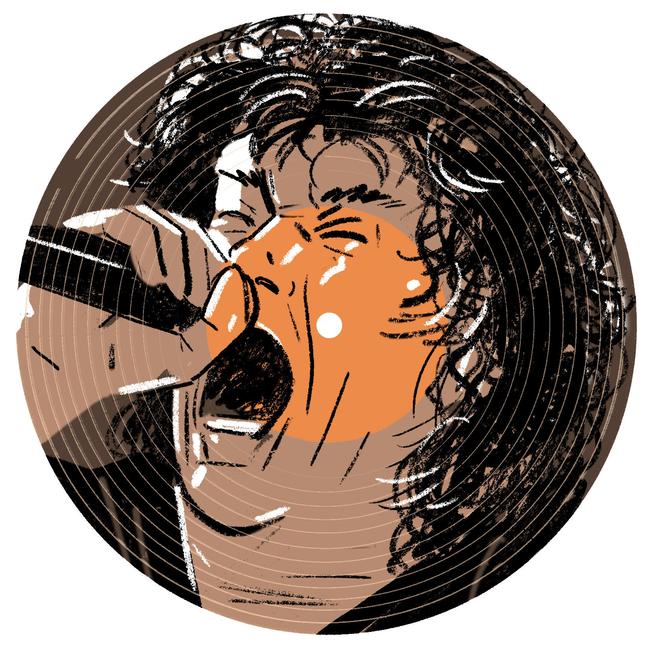
Sweethearts was a cafe in the heart of Kings Cross with an overblown reputation. But its 1950s ambience appealed and unlikely people spent hours there, including Rudolph Nureyev. Don Walker also was a regular and wrote Khe Sanh there. It managed No.41 on the charts the year before; Breakfast at Sweethearts peaked on the charts in the 60s. Walker’s ode to Sweethearts was another demonstration of his clever, imaginative songwriting, with lyrics that tamed Jimmy Barnes’ caterwaul for four minutes.
1980: West Is The Way (Stars)
Andy Durant lived 25 years. Buddy Holly just 22. But each left a body of work that will be interpreted and mined by new acts for as long as people have ears. Durant’s band, Adelaide’s Stars, barely dented the charts – its highest placed single made No.30. West Is The Way is among the most beautiful songs ever written and, unusually, Durant sang it. It didn’t chart. The 1980 Andy Durant Memorial Concert album – a hit – closed with Durant’s brooding masterpiece.
1981: You Weren’t In Love With Me (Billy Field)
This writer lived in London in the 1980s and missed Billy Field’s chart-topper album Bad Habits. Thank God. When Review came home it had some catching up to do with Australian music. Soon enough, the seductive melody of Field’s You Weren’t In Love With Me came on the radio. He is a wonderful musician with a limited voice, but that never stopped Bob Dylan. Had Billy Joel sung this terrific song, it would still pop up on greatest 80s hits collections.
1982: One Perfect Day (Little Heroes)
It is so unexpected, so unusual, and Roger Hart’s vocal delivery so casual. He wrote it about two Australian friends who were living in England in 1979, with the line “And did the government fall last night?” referencing Margaret Thatcher’s election victory in May 1979. But the cleverness and longing of “If you ever come back, just drop by / one perfect day” says it all.
1983: Rain (Dragon)
Their only top 10 hit not written by the gifted Paul Hewson. By then he was in the 15th round of a fight with heroin and contributed almost nothing to the album from which this came. The perfect slice of ageless rock rose to No.2, but watch the disinterested Hewson in the video – detached, making odd silhouettes. He left Dragon in late 1984 and days later was found dead in his car. A Hendrix album was placed on his lowered coffin.
1984: Reckless (Australian Crawl)
Even James Reyne is uncertain what this is all about, but an original idea drew on aloneness – Burke and Wills, Robert Falcon Scott, “Russian sub beneath the Arctic”. No Russian submarines have been lost or sunk beneath the Arctic, but one was scuttled there in 1982. The boys from Melbourne’s beaches captured beautifully in a few lines ferry life for Sydneysiders: “Meet me down by the jetty landing / where the pontoons bump and spray.”
1985: Warnings Moving Clockwise (Do Re Mi)
All the band is credited with writing this extraordinary song, but surely its lyrics are Deborah Conway’s. Stephen Philip’s repetitively angular guitar line anchors a sparse production with Conway’s voice and unsettling, compelling lyrics at the centre of, well, not much. The production ensures these words cannot wash over you. “My hands are steady and I look to the skies / And I ask for a messenger who never replies / I see jets over Jordan …”.
1986: Throw Your Arms Around Me (Hunters and Collectors)
Recorded two years earlier, the band improved on this song for 1986 album Human Frailty. It is credited to the band, but Mark Seymour has always been clear about its authorship. It’s his song. It stalled on the charts at 49. But it has rated highly on all-time greatest songs coming in two, two and four in Triple J’s Hottest 100 for three years and then second on its 1998 all-time list of best songs.
1987: Don’t Dream It’s Over (Crowded House)
Often new bands emerge and are likened to the Beatles. Crikey, they even said that about The Knack. But for a very good reason none are. Mainly because songwriting inventiveness is the domain of so few. Imagine having three Beatles in the one band. But Neil Finn would have got a guernsey had his parents given birth to him in Liverpool 15 years earlier. And only he could have made these dense lyrics so irresistibly singable.
1988: Age Of Reason (John Farnham)
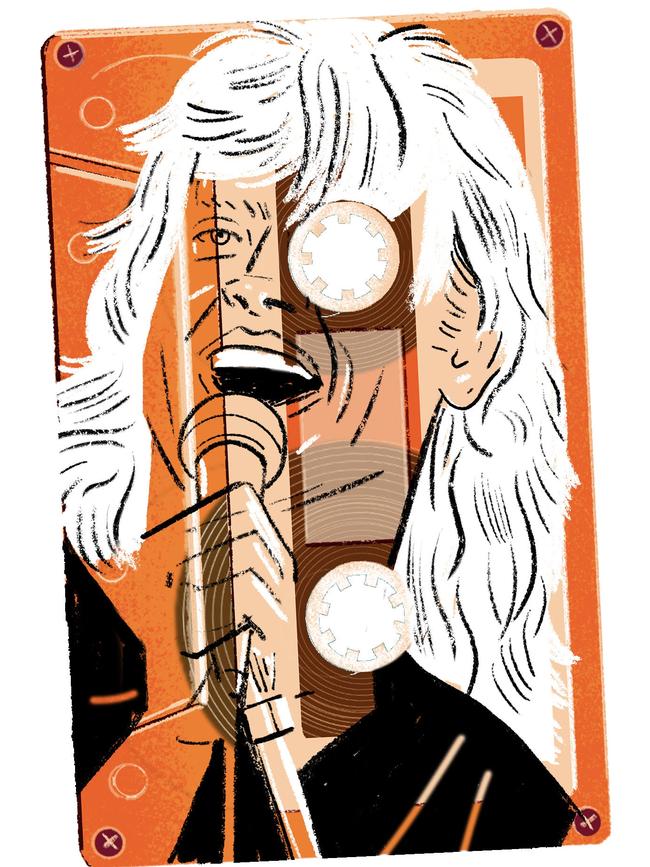
This was written by Dragon bassist Todd Hunter with his wife Johanna Pigott. With Todd’s brother Marc, they had written Rain in 1983, Dragon’s final highlight. Age of Reason is just about the perfect pop song and observes the commonsense of US Founding Father Thomas Paine’s enlightenment writings. David Hirschfelder’s off-the-beat piano interlude remains one of the most stunning moments in Australian music.
1989: Tucker’s Daughter (Ian Moss)
Alice Springs’ only rock star is a magnificent, restrained guitarist and wrote the music to this song, but had very few words. Among those were the pivotal “build me up just to tear me down”. Helpfully, he also had an opening line: “Hey there, motherf..ker.” His Cold Chisel mate Don Walker rewrote this as “Hang me for a sucker” and later “Boss man’s Mr Tucker” and an Australian rock classic was born. Were this Bruce Springsteen’s, it would have been a global smash.
Andrew McMillen continues:
1990: Thunderstruck (AC/DC)
There’s a reason why this has been a staple at pretty much every AC/DC concert since its release: as a hard rock song arrangement, it’s perfect. Even if you’ve heard it a thousand times, it’s worth another listen with fresh ears, at high volume. As with many of the Sydney-born band’s best songs, its true genius lies in the sparkling innovation of Malcolm Young’s rhythm guitar, which elevates it into the pantheon of hard rock timelessness.
1991: Treaty (Yothu Yindi)
“Words are easy, words are cheap / Much cheaper than our priceless land,” sings Dr Yunupingu. “But promises can disappear / Just like writing in the sand…” Easily one of the greatest protest songs ever penned, Yothu Yindi’s landmark track was issued just three years after Bob Hawke’s 1988 commitment to a treaty between Indigenous and non-Indigenous Australians, which has yet to come to fruition. As a complete artistic statement, its potency is what put this band on the map internationally – but even when assessed purely in musical terms, as a catchy rock song co-written with Paul Kelly and Peter Garrett, it stands tall, strong and proud.
1992: Promenade (Underground Lovers)
A scorching, serrated electric guitar tone occasionally rears its head throughout a bustling arrangement from this Melbourne rock act, whose ear for blending shoegaze-style noise with undeniable melody was finely tuned on this track from its second album. Its middle eight amps up the drama, before Glenn Bennie’s jagged axe rips in again at length.
1993: The Honeymoon Is Over (The Cruel Sea)
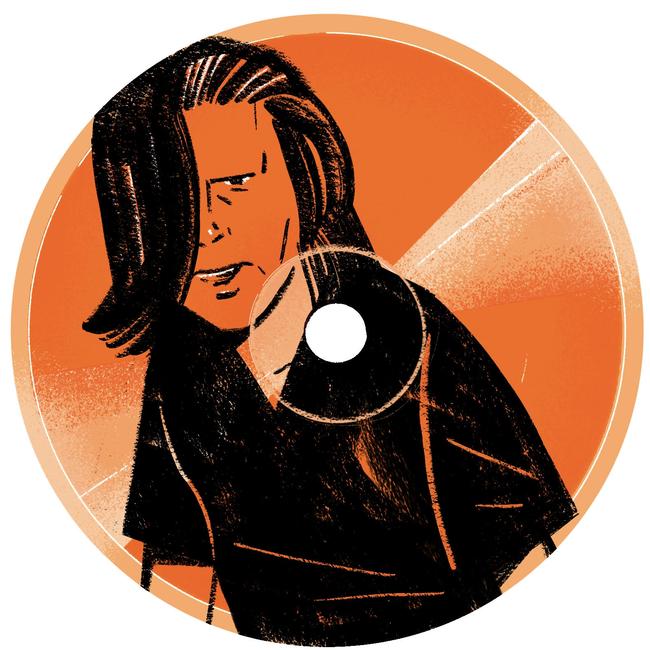
This is one of the best examples of “starting on the one” you’ll ever hear, where the four musicians all meet on the opening note and singer Tex Perkins lets out something between a sigh and a roar. Expertly produced by the late engineer Tony Cohen, this beautifully clear, dynamic recording bursts out of the speakers and grips you for three minutes, as stacked vocal and instrumental hooks combine to stunning effect.
1994: Sorrento Moon (I Remember) (Tina Arena)
Written with Arena’s adolescent experiences of summers spent holidaying on the Mornington Peninsula in mind, Sorrento Moon pairs an earworm vocal with a Latin-feel arrangement heavy on acoustic guitars and maracas. A bittersweet sense of childhood nostalgia looms large throughout its five glorious minutes, where sublime melody reigns supreme.
1995: Deeper Water (Paul Kelly)
Its lyrics capture the scope of a human life – from childhood through parenthood, onto premature death by cancer and its aftermath – within the space of six short verses, all while backed by chiming guitars, a driving backbeat and sparkling keys. Kelly has written a stack of great songs, but this remains his masterpiece, released in his 40th year. Capable of reducing grown men and women to puddles of rubble on each and every listen, this is a golden songwriting achievement.
1996: I Want You (Savage Garden)
The chart-topping debut single by this Brisbane duo is a madcap, breakneck ode to lust that contains elements of pop, rock and dance music, all artfully whipped together by producer Charles Fisher in a propulsive mix that demands repeat listens – as did many of the group’s subsequent singles, in a too-short, two-album career that ended in 2001.
1997: Down Again (The Superjesus)
Coloured by a glittering battery of stacked electric guitars that’d make the Smashing Pumpkins smile in appreciation, this belter of a single from these Adelaide rockers is topped by some of singer Sarah McLeod’s best vocal work. Across five minutes, the song steadily shifts through the gears before its middle-eight culminates in a sparkling guitar solo.
1998: Heavy Heart (You Am I)
As one of the quietest songs from one of Australia’s greatest bands, this acoustic arrangement is a far cry from its usual high-voltage rock ’n’ roll. But the additional space allows frontman Tim Rogers’ weary lyrics and downcast vocals to shine, as he riffs on an array of metaphors for low mood. Highlight: “I’m diggin’ a hole, just staring at the floor.” Depressing, right? But oddly, it’s one of the band’s most popular songs.
1999: Emotion Sickness (Silverchair)
The opening track from the Newcastle trio’s third album was a bold artistic leap forward, as the band and its songwriter Daniel Johns evolved far beyond its teenage alt-rock roots in favour of an ornate, six-minute arrangement backed by orchestral strings and lashings of piano played by David Helfgott. Silverchair issued many great songs across five albums, but none more surprising and enduringly affecting than this, which also contains one of Johns’ best vocal performances.
2000: Thrilloilogy (Powderfinger)
Once this Brisbane quintet found success, it largely sought to bury its prog-rock roots in favour of a far more palatable commercial sound that endeared it to millions. But on this deep cut from its fourth album, those proggy predilections were briefly revived to stunning effect across six glorious minutes. It’s clearly a band favourite, too: when Powderfinger reunited for a remotely recorded Covid fundraiser in 2020, this song was one of only eight dusted off and reprised.
2001: Can’t Get You Out Of My Head (Kylie Minogue)
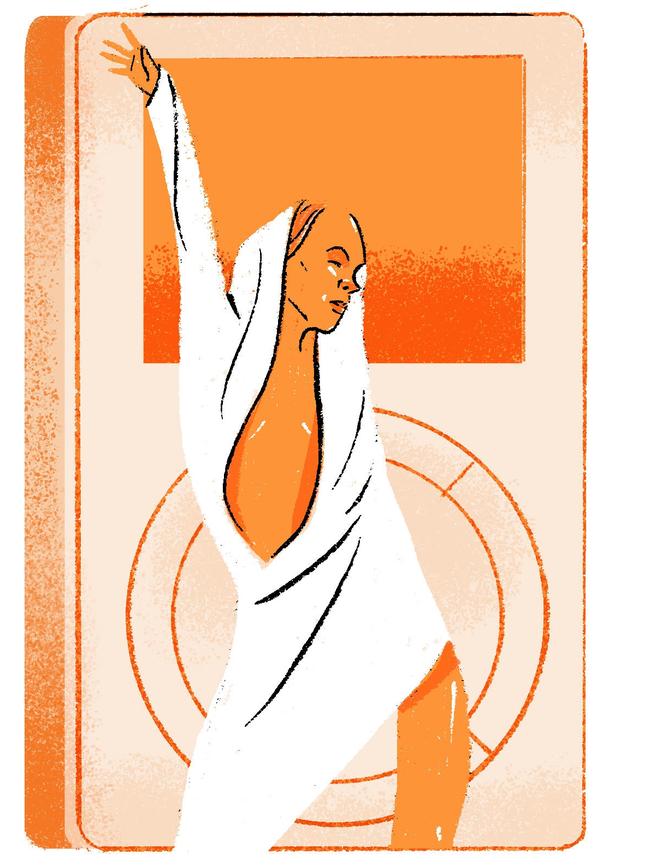
As a synonym for “irresistible”, has there been a more apt pop song title than this? The lead single from Minogue’s eighth album Fever pivoted on an expertly assembled beat that’s busy and spacious, as the bassline, synth notes and strings interweave through an insistent rhythmic bed. Co-written by Brits Cathy Dennis and Rob Davis, this guaranteed dancefloor-filler quickly became Minogue’s signature song for good reason.
2002: London Still (The Waifs)
“Wonder if you can pick up my accent on the phone? / When I call across the country, when I call across the world…” sings Donna Simpson in a distinctively Australian drawl. Spoiler: the WA-based songwriter had only been in London a few days when she felt the twinge of homesickness that spurred this song. Yet knowing that fact doesn’t change the power of this tune, which remains a highlight in the career of this long-running folk-rock trio, completed by Donna’s sister Vikki and ace acoustic guitarist Josh Cunningham.
2003: This Day Last Year (The Panics)
For the sound of his own band, The Go-Betweens co-founder Robert Forster coined a memorable phrase: “that striped sunlight sound”. Forster’s description comes to mind every time the opening song from this Perth rock band’s debut album comes trickling out of the speakers: it’s a gorgeously layered, melodic composition led by Jae Laffer’s gentle vocal tone, which effortlessly conjures a sunny, optimistic mood in the listener.
2004: Scar (Missy Higgins)
The breakout single from this Melbourne-born singer-songwriter bustles with verve and panache, as her plucky piano playing, acoustic guitars and a horn section all work in service of a winning, memorable melody that put Higgins on the national map, where she’s been ever since. Co-written with Kevin Griffin, the song’s evergreen lyrics deal with learning to recognise unhelpful advice, and its pre-chorus contains a most memorable image: “A triangle trying to squeeze through a circle.”
2005: Themata (Karnivool)
It begins with a sharp intake of breath and doesn’t let up for nearly six minutes, as this Perth quintet winds its way through a complex, heavy rock arrangement led by singer Ian Kenny’s phenomenal sense for melody. The band has ventured ever deeper into progressive metal territory since its release, but this title track to its debut album stands tall as a soaring, uplifting anthem.
2006: I Don’t Ever Want To Change (The Drones)
This WA-born band eventually shifted to Melbourne, where it spent a decade or more as a lauded cult act in indie rock circles until it went on hiatus in 2016. Frontman Gareth Liddiard’s verbosity and idiosyncratic vocal delivery – and his bandmates’ penchant for demented noisemaking – may have blunted its chances of breaking into the mainstream, but the classic-rock feel of this track from third album Gala Mill is that rarest of Drones creations: a catchy, accessible pop song.
2007: Untouched (The Veronicas)
This song is, frankly, bonkers: a one-of-a-kind electro-pop mishmash of disparate tones and textures topped by the Brisbane-born Origliasso twins’ frantic vocals, and led by an instantly identifiable five-note synthesised string sample that recurs throughout. On paper, it shouldn’t work – but blasting out of your speakers at high volume, it does, and brilliantly so. Pure adrenalised fun.
2008: Sweet Disposition (The Temper Trap)
With its swarm of delayed, palm-muted guitar notes and gentle introduction of drums and bass, the debut single from this Melbourne band was expertly designed to hook a mass audience. In the chorus, when singer Dougy Mandagi’s ethereal voice climbs into the clouds above his bandmates’ beautiful arrangement, its status as an indie rock anthem was guaranteed.
2009: Blood (The Middle East)
An unknown indie-folk band from Townsville was thrust into the spotlight with this unusual song, which opens quietly with finger-picked acoustic guitar and Jordan Ireland’s plaintive voice, whose three verses track three generations of a family. Once he finishes addressing a widowed grandfather and his loss (“The only woman you ever loved / That got burnt by the sun too often when she was young”), the song turns grief into a celebration by concluding with a gospel-style, wordless coda.
2010: Watercolour (Pendulum)
This Perth-born act became globally revered for its blending of electronic rock with drum-and-bass dance music, and the lead single from its third album showcased its mastery of the form. It’s not until the chorus that a ribcage-shaking bassline is let loose in the mix, and this propulsive track continues to rise and fall across five minutes before ending with a most satisfying fanfare.
2011: Somebody That I Used To Know (Gotye featuring Kimbra)
One of those rare cases where a song’s pop cultural omnipresence simply cannot overshadow its pure genius. At the time of its release, Belgian-Australian singer-songwriter Wally De Backer had already earned a little indie cred among Australian audiences, but this patient, clever, hook-filled second single from his third album Making Mirrors is the one that made him a well-deserved yet somewhat reluctant pop star, aged 31.
2012: Wild Eyes (Parkway Drive)
Four albums into its career as a respected metalcore band, this Byron Bay quintet began reaching towards arenas with its songwriting, which began to emphasise en masse melody without sacrificing its heavy metal roots. That decision was exemplified with Wild Eyes, whose sparkling lead guitar line is a concert clarion call, while vocalist Winston McCall’s closing lyric (“Viva the underdogs”) was adopted as a de facto mission statement for what’s become Australia’s most successful metal band.
2013: Jubilee Street (Nick Cave and the Bad Seeds)
Led by a beguiling tenor guitar phrase played by Warren Ellis, this song holds a dark magnetism that steadily builds across six minutes. Its lyrics concern a sex worker and one of her clients, who finds himself “pushing my wheel of love up Jubilee Street” once again – but the narrative takes a turn toward the transcendent in its final minutes, as the Bad Seeds rise together while backed by strings, a choir and an electric guitar chopping through chords. A fan and band favourite, it has been a staple in Cave’s live setlists since its release.
2014: Chandelier (Sia)
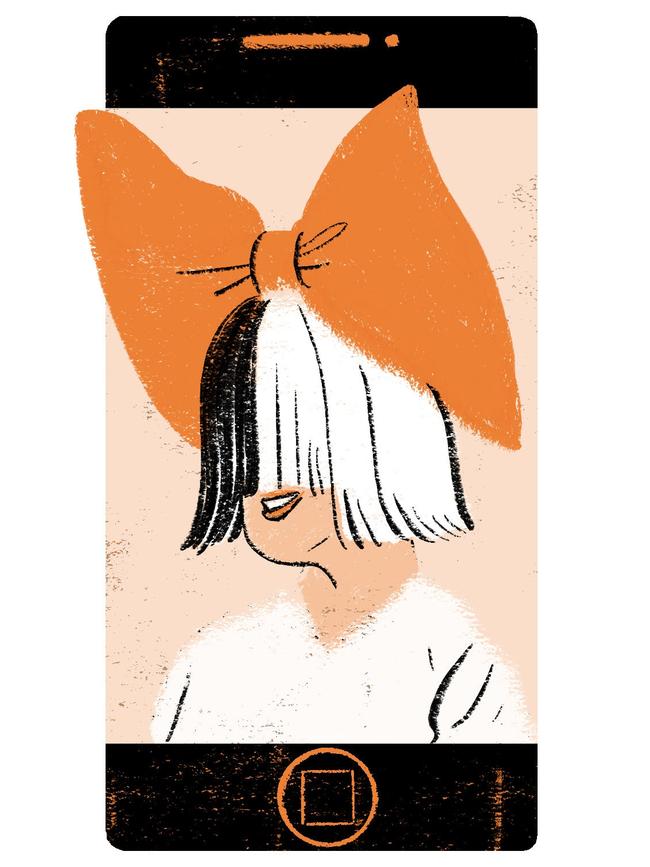
Adelaide-born singer-songwriter Sia Furler found fame with this lead single from her sixth album, wherein a “party girl” protagonist describes throwing back drinks until she loses count, and living “like tomorrow doesn’t exist”. Furler could well have been singing about her own past life as an addict – but when backed by a booming beat and coloured by her spine-tingling vocal performance, it became a highly relatable global hit. As for fame? Furler wasn’t a fan, and began hiding her face behind a platinum blonde wig.
2015: Let It Happen (Tame Impala)
At almost eight minutes, the lead single from Tame Impala’s third album was a gutsy statement of intent: Fremantle-based singer-songwriter Kevin Parker had come a long way from his psych-rock roots, and he wasn’t afraid of kicking down genre boundaries in search of musical greatness. He certainly found it on this expansive track, which contains both a fearful concern (“If I never come back / Tell my mother I’m sorry”) and the bizarre sound of a CD skipping, which Parker and co recreate in concert.
2016: Adore (Amy Shark)
A stark, sweet play-by-play of a night out while falling in love, this Gold Coast-born singer-songwriter rocketed to national attention with this artfully composed track, which blended clean guitar chords with hip-hop style electronic elements (via co-writer M-Phazes). Her strength as a writer is in capturing small moments that reveal the whole, and for a generation of Australian music fans, this song is eminently quotable and relatable for its potency in capturing the feeling of infatuation.
2017: Let Me Down Easy (Gang of Youths)
Driven by a chugging bassline, a Krautrock drumbeat and synth stabs, its five minutes are a fine showcase of this Sydney-born band’s power and, in particular, frontman Dave Le’aupepe’s honey-voiced irresistibility, in both its wordy verses and his sweetly-sung choruses, where his vocal melody beautifully circles around the stabbed-synth motif. It also features a fantastic bridge: “If it’s late, you’re drunk and wanting / A reason, some reason to live / I always, I always say / Just put on some Whitesnake.”
2018: Phantom (Sarah Blasko)
The opening track from her sixth album saw this Sydney singer-songwriter give prominence to a busy synthesised bassline and stomping drumbeat that opens up plenty of sonic space for her voice to soar. Inspired by a nugget from her father via Nietzsche’s idea of a “phantom ego”, Blasko’s lyrics draw a link between the thread of love and connection that ran between her parents and her own child, and the result is a stunning ode to her next of kin: “my phantom heartbeat”, as she sings in its chorus.
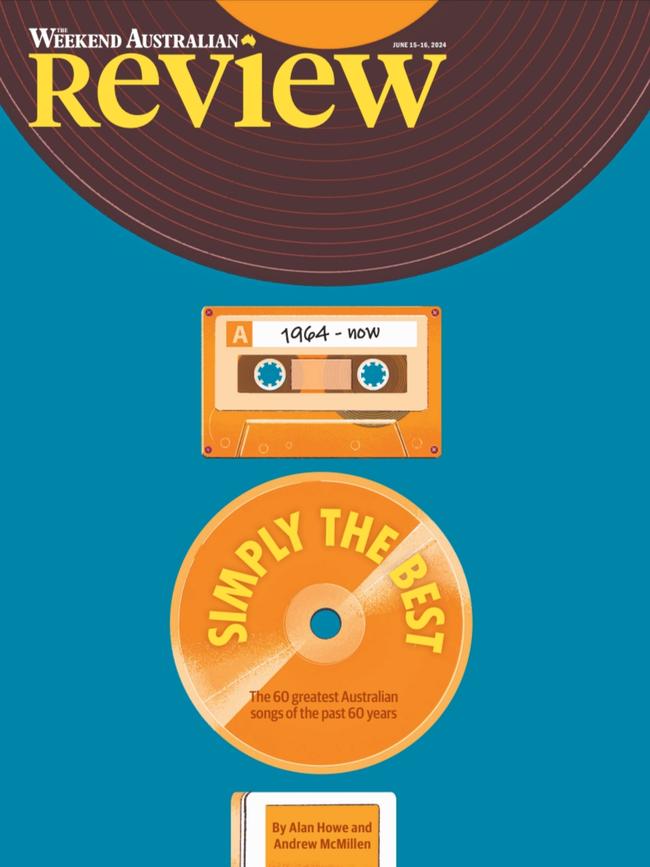
2019: Final Form (Sampa the Great)
A defiantly proud and powerful mission statement for the artist also known as Sampa Tembo, who was born in Zambia and moved to Australia in 2014. Five years later, she became the first female artist to win the best hip-hop release category at the ARIA Awards with this booming, brassy track that celebrates her cultural heritage. “Young veteran, new classic,” she rapped, accurately describing both herself and her signature song.
2020: Cherub (Ball Park Music)
Led by an unusual, ear-catching chord progression strummed by frontman Sam Cromack as he sings a gorgeous melody, this track from the Brisbane indie rock band’s sixth album demands patience. Three relatively quiet minutes pass before the five musicians begin truly playing together, and close out the song with a stirring, wordless conclusion which reprises a melodic motif that’s both achingly beautiful and original, yet somehow so familiar. Amid a series of abstract lyrical images, Cromack sings, “Everybody knows my name” – which isn’t true as far as his band’s concerned, but on the strength of this perfect song, it should be.
2021: Get Me Out (King Stingray)
The breakout song by this northeast Arnhem Land surf-rock band is built on a laid-back drumbeat, a busy bassline and melancholic guitar chords, as Yirrnga Yunupingu sings of yearning for Yirrkala – “A place where you live and a place where you grow” – while feeling trapped in an urban environment. It heralded a sound at once new and old, as the NT band blended a classic rock songwriting feel with moving, gorgeous Yolngu Matha vocalisations while announcing itself as a formidable presence.
2022: Nobody’s Child (Midnight Oil)
Even after 45 years of mining major variations within the realm of rock ’n’ roll songwriting, this Sydney-born act continued to find new ways of articulating its distinctive sound on its 13th album, Resist. Credited to guitarist/keyboardist Jim Moginie and singer Peter Garrett, this song is built on a storming, spaced-out riff that contains familiar echoes of umpteen timeless Oils songs issued across its career. Garrett sings of prizing “beauty, love and compassion”, yet in a curious musical counterpoint, the band rarely sounded more furious and fired-up in the studio than on this standout track.
2023: Tied Up! (Genesis Owusu)
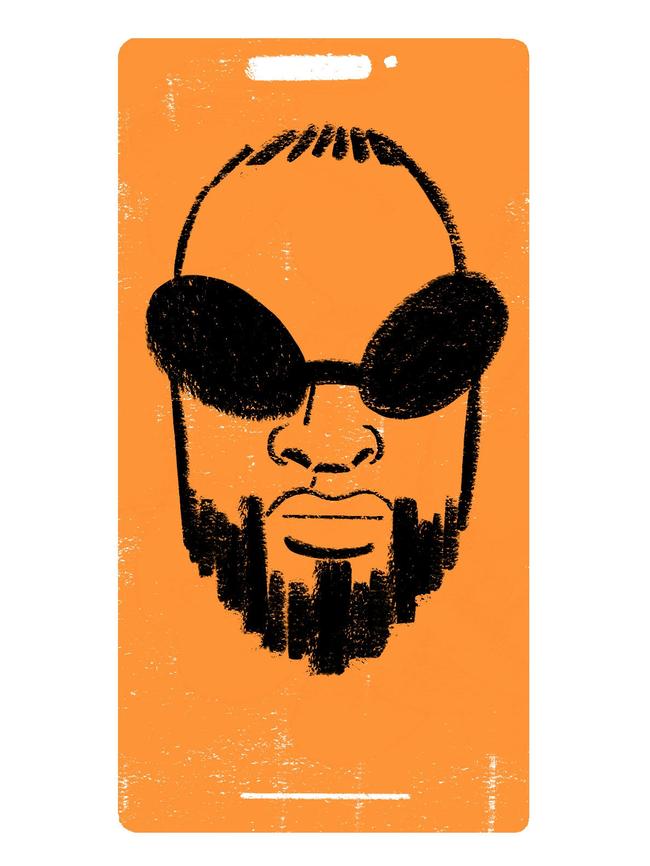
The Ghanaian-Australian hip-hop artist born Kofi Owusu-Ansah is one of the brightest stars to emerge in recent years, and this smooth single from his second album Struggler exhibits his fine talents as a songwriter, vocalist and collaborator. Co-written with Sol Was, the three-minute track skirts funk, pop and R&B modes atop a liquid bassline, before briefly morphing into an arena-sized dancefloor stomper in its closing bars.
What are the Australian songs that defined the best years of your life? Tell us in the comment section below.

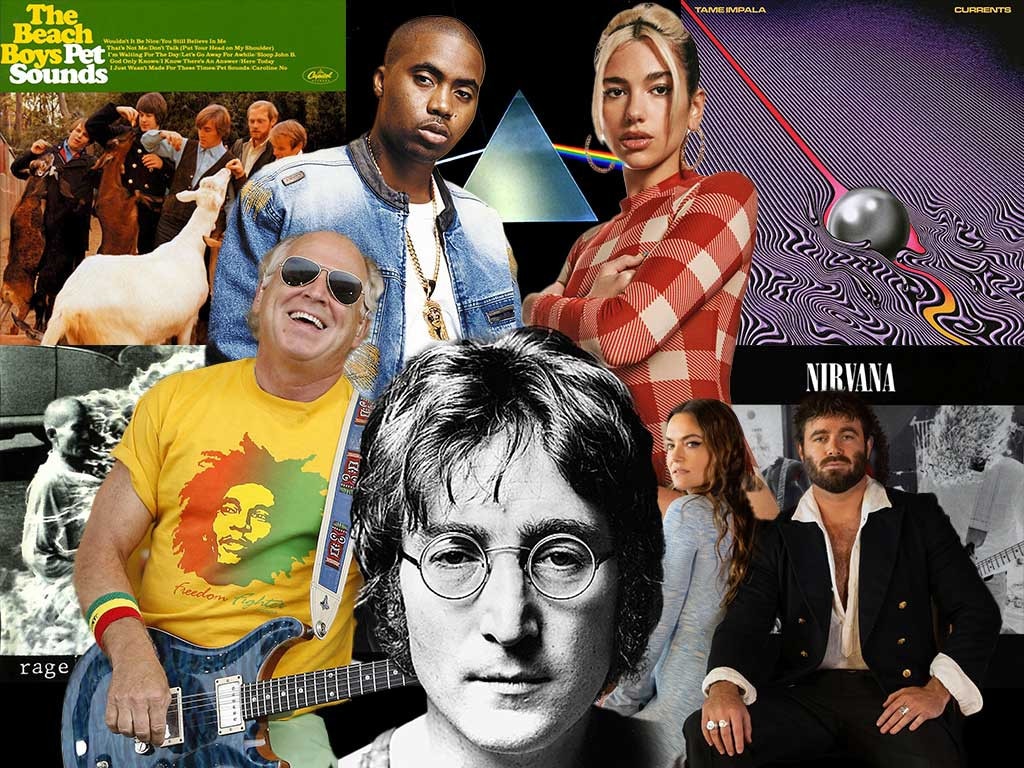

To join the conversation, please log in. Don't have an account? Register
Join the conversation, you are commenting as Logout